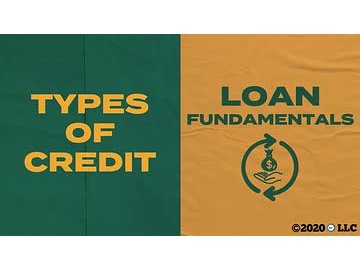Filter by
Sort
Sub-category
Training Bundles
- Artificial Intelligence
- California HR Essentials
- Cybersecurity Essentials
- Digital Transformation
- Diversity, Equity & Inclusion
- DOT/CDL
- Drug and Alcohol Compliance
- Financial Compliance
- First Aid
- Food Safety
- HIPAA Compliance
- HR Essentials
- Leadership
- Mental Health & Wellbeing
- OSHA / Construction Safety
- Personal Development
- Project Management
- Retail
- Workplace Harassment
- Workplace Safety
State
Language
Tags
Price
Duration
Audience
Online Professional Development Finance Courses Courses
Courses

Professional Development
Budgeting Essentials: 07. Managing Inventory

Professional Development
Budgeting Essentials: 05. Budgeting Revenue

Professional Development
Budgeting Essentials: 06. Budgeting Discounts

Professional Development
Budgeting Essentials: 02. Budgeting Methods

Professional Development
Budgeting Essentials: 03. Budget Reporting

Professional Development
Budgeting Essentials: 04. Budgeting Expenses

Professional Development
Intro to Finance: 02. Finance Terms

Professional Development
Budgeting Essentials: 01. What Is Budgeting?

Professional Development
Types of Credit: Selecting a Credit Card

Professional Development
Business Resilience: Adopt Strategies To Retain Customers During Economic Challenges Course

Professional Development
Types of Credit: Loan Fundamentals

Professional Development
Savings: Selecting the Right Savings Account

Professional Development
Cryptocurrency: Master Crypto Trading And Identify High-Potential ICOs Course

Professional Development
Effective Management in Housing Associations Strategies for Success Course

Professional Development
Applying for Universal Credit Course

Professional Development
4 Case Studies Step Change Course

Professional Development
3 Stepchange Referring a Tenant Course

Professional Development
2 StepChange About Debt Course

Professional Development
1 Introduction to StepChange Debt Charity Course

Professional Development
What is Universal Credit Course

Professional Development
Universal Credit Working Course

Professional Development
Universal Credit Self Employment Course

Professional Development
Universal Credit How Do I Claim? Course

Professional Development
Universal Credit Housing Course
About Finance Courses Training
When I first got my start in finance, I remember staying late in the office, scrolling through endless spreadsheets, and thinking, “There’s got to be a better way to make sense of this.” I wasn’t alone—most of my colleagues were in the same boat. The truth is, finance can feel like a language you’re expected to speak fluently without much guidance. That’s why Finance Courses Training has become so valuable. It’s not just about passing exams or landing a promotion—it’s about gaining confidence, sharpening judgment, and turning theory into decisions that matter in the real world.
Understanding the Finance Courses Training Core Issues
The biggest challenge people face in finance is the sheer volume of information. Accounting standards, investment strategies, fintech trends—it’s easy to feel like you’re drowning in details. What Finance Courses Training does is bring order to the chaos. Instead of Googling your way through scattered resources, you follow a path that starts with the basics and builds toward advanced skills. This structure helps learners not only keep up but actually stand out. Imagine being the person in the meeting who can break down a valuation or explain a risk model with clarity—suddenly, your input carries weight.
Legal & Industry Framework
Finance isn’t just about crunching numbers; it’s about responsibility. Laws like Sarbanes-Oxley, anti-money laundering regulations, and international reporting standards shape the way professionals do their work every day. Missing the mark isn’t just embarrassing—it can cost a company money and credibility. Good Finance Courses Training ties practical skills to these legal frameworks so you’re not just technically capable, but also trustworthy in roles where compliance really matters.
Employer/Organization Responsibilities
From the employer’s perspective, training is an investment in both people and reputation. A company that supports Finance Courses Training is saying, “We believe in our team’s future.” That belief shows up in fewer reporting mistakes, smoother audits, and stronger relationships with clients and investors. When leadership makes training a priority, employees feel valued, and culture improves. Over time, this creates loyalty and performance that money alone can’t buy.
Employee/Individual Responsibilities
For individuals, Finance Courses Training only works if you put in the effort. That might mean practicing financial models on your own time or applying portfolio strategies to your personal investments. The more you use what you learn, the faster it sticks. There’s also an ethical side: finance professionals handle sensitive information, and training reinforces how to manage that responsibility with integrity. When employees treat training as part of their identity, not just another checkbox, they set themselves up for lasting growth.
Case Studies and Scenarios
Think about an entry-level analyst who was struggling to prepare for the CFA exam. She signed up for a Finance Courses Training program that broke lessons into manageable modules and included a peer study group. With support and structure, she passed—and within a year, earned a promotion. On the flip side, there was a mid-sized firm that skipped compliance training updates. When reporting standards changed, their team made errors that led to hefty penalties. Two very different outcomes, but both underline the same point: training can change a career—or protect a company from disaster.
Preventive Measures and Best Practices
The best training programs don’t stop at lectures. They include simulations, case studies, and even role-play exercises that mimic real situations. Busy professionals often benefit from short, modular lessons they can complete between meetings or during commutes. Many programs now weave in tools like Excel, Power BI, or even fintech apps to make the lessons feel practical. Pair that with mentorship or discussion groups, and you get a learning experience that sticks instead of fading after the final quiz.
Compliance, Certification & ROI
Certifications like CFA, CPA, or ACCA don’t just look good on paper—they’re game changers for careers. Finance Courses Training often serves as the foundation for passing those tough exams. For employers, it’s also about risk management. Documented training proves compliance during audits, protects against regulatory fines, and reassures clients. The return on investment shows up in higher efficiency, fewer mistakes, and stronger financial performance. For individuals, it often translates to promotions, salary growth, and the confidence to take on bigger challenges.
Conclusion
At its heart, Finance Courses Training is about building a bridge between ambition and opportunity. For professionals lying awake at night wondering if they’re doing enough to grow their careers, training offers a clear path forward. It takes that feeling of uncertainty and replaces it with clarity and capability. Whether you’re working toward a certification, aiming for leadership, or just trying to make smarter decisions with money, investing in your skills today sets the tone for the career you want tomorrow.
Finance Courses FAQs
Why is Finance Courses Training important for businesses?
Finance Courses Training is important because it equips employees with the knowledge and skills to manage money responsibly, reduce costly errors, and maintain compliance with financial regulations. Businesses that invest in training not only avoid mistakes but also build stronger trust with clients, investors, and regulators.
How often should Finance Courses Training be updated?
Finance Courses Training should be updated at least once a year. The finance world changes quickly—new laws, technologies, and market shifts appear regularly. Annual updates keep professionals sharp and prepared to meet current challenges with confidence.
Are online Finance Courses Training programs as effective as in-person options?
Online Finance Courses Training can be just as effective as in-person options when designed well. Features like live webinars, interactive exercises, and practice simulations make online learning engaging and practical. Many professionals prefer online courses because they provide flexibility without compromising quality.
What happens if Finance Courses Training is ignored or not applied?
If Finance Courses Training is ignored, both employees and businesses pay the price. Individuals risk falling behind peers and missing career opportunities, while companies face compliance violations, financial reporting errors, and potential losses. Skipping training often costs far more than the investment needed to provide it.
How can organizations measure the effectiveness of Finance Courses Training?
Organizations can measure Finance Courses Training effectiveness through exam pass rates, improvements in employee performance, and reductions in financial reporting errors. Feedback surveys and real-world application assessments also help determine how well employees are applying their knowledge in daily operations.
